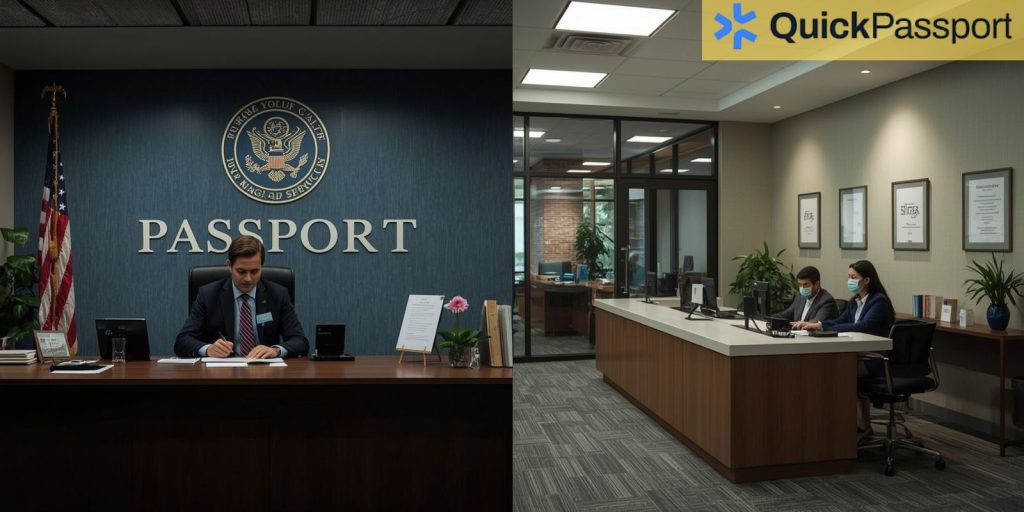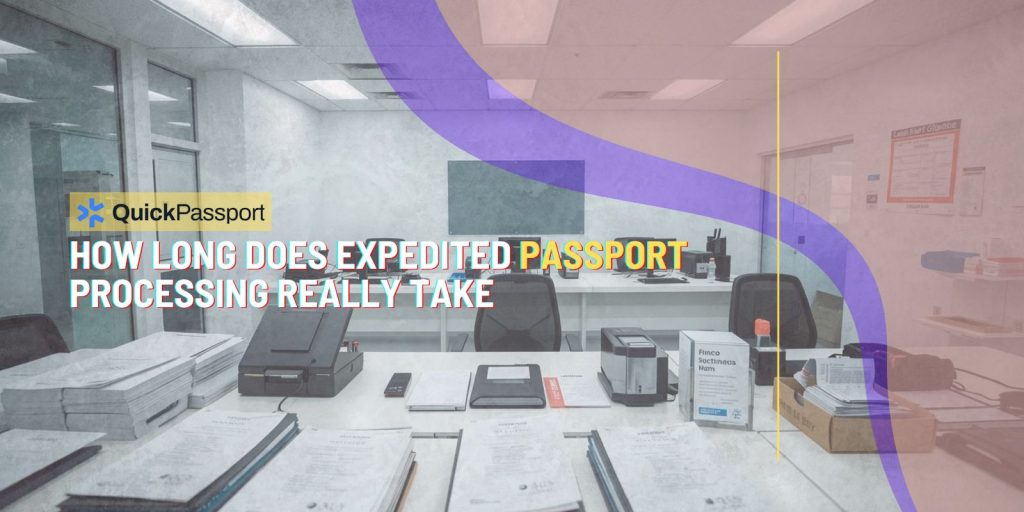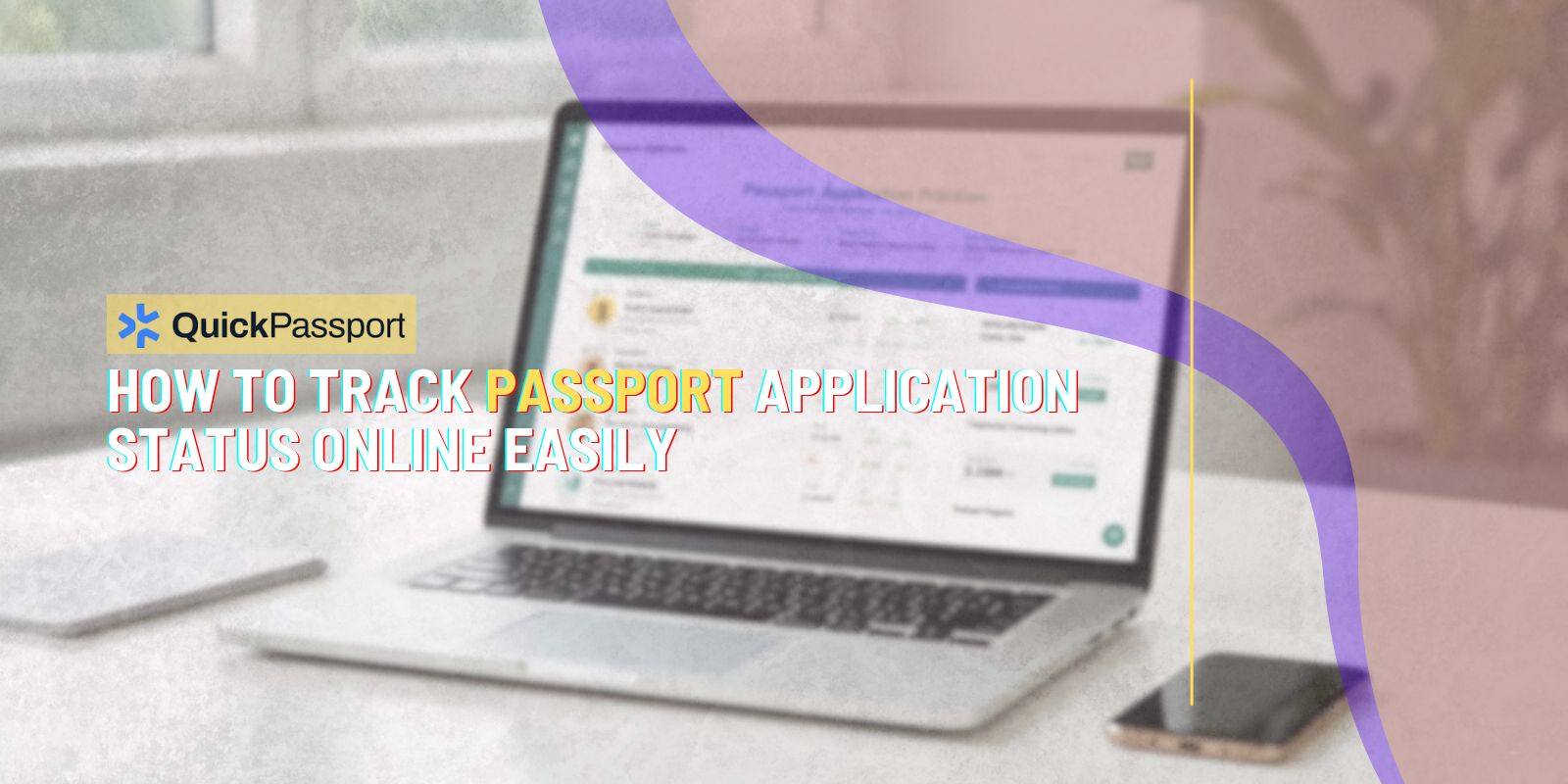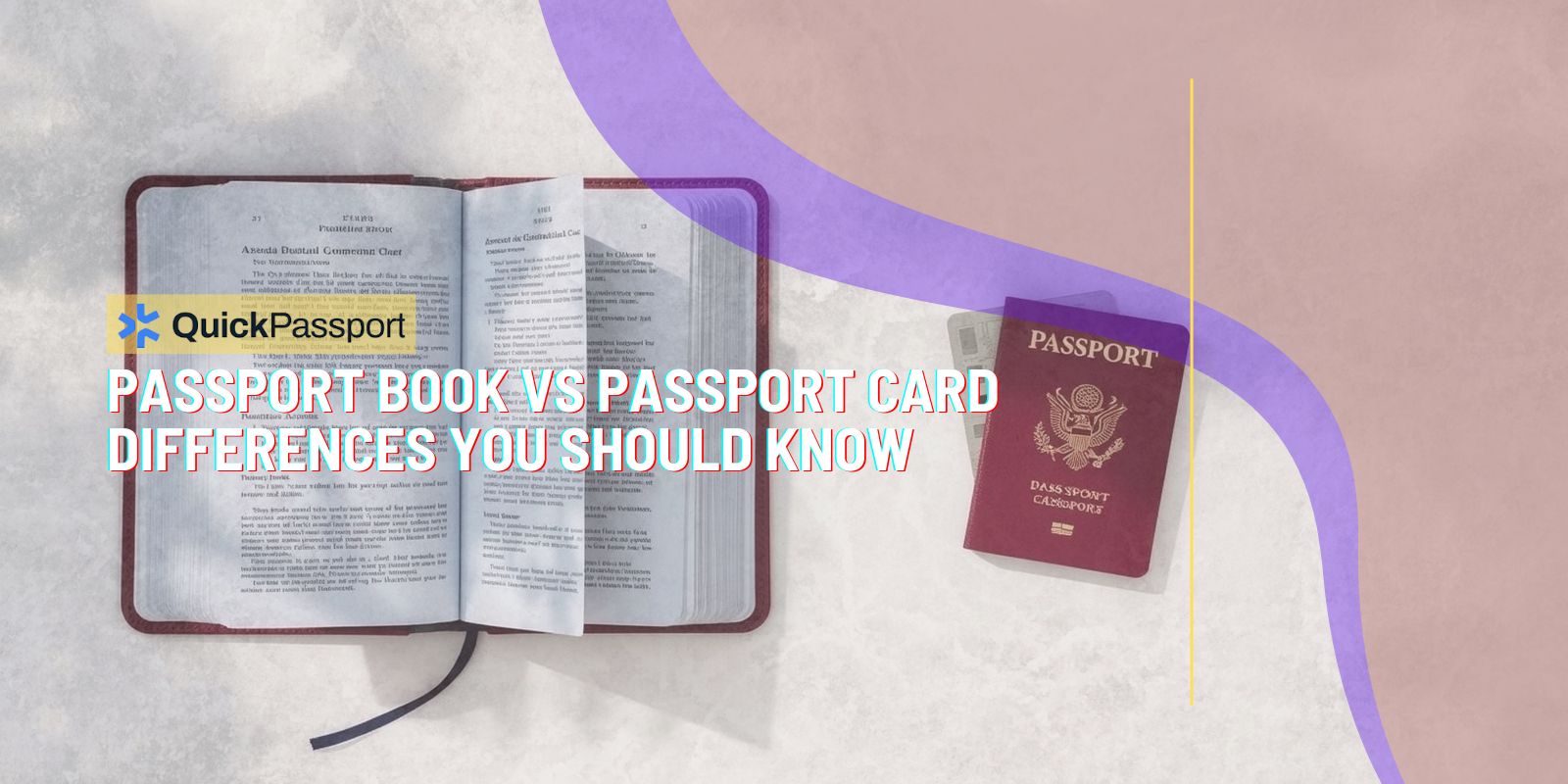When you need a passport quickly, understanding exactly how long expedited passport processing takes can make the difference between making your travel plans and missing your trip entirely. The standard passport processing time through the U.S. State Department can stretch for weeks or even months during peak travel seasons, leaving many travelers scrambling for faster alternatives.
Expedited passport processing has become an essential service for millions of Americans who find themselves needing travel documents on short notice. Whether you’re facing a family emergency abroad, discovered your passport expired just before a planned vacation, or received an unexpected business travel assignment, knowing the realistic timeframes for expedited services helps you make informed decisions about your travel documentation needs.
The complexity of expedited passport processing extends beyond simple government timelines. Multiple factors influence how long the process actually takes, including the type of service you choose, the time of year you apply, your specific circumstances, and whether you’re applying for a new passport or renewing an existing one. Understanding these variables helps set realistic expectations and allows you to plan accordingly.
Professional passport expediting services have emerged as a reliable solution for travelers who need certainty about their processing times. These services work directly with government agencies and have established relationships that often result in more predictable timelines than going through standard government channels alone. However, not all expediting services operate with the same level of efficiency or reliability.
The question of how long expedited passport processing really takes doesn’t have a simple answer because it depends on multiple interconnected factors. Government expedited services typically promise faster processing than standard applications, but real-world experiences often vary significantly from official estimates. Private expediting companies can offer even faster turnaround times, but understanding their processes and limitations is crucial for making the right choice for your specific situation.
Key Takeaways
- Government expedited processing typically takes 5-7 weeks for routine applications, compared to 8-11 weeks for standard processing, though these timeframes can extend during peak travel seasons or due to unexpected delays.
- Private expediting services can often deliver passports in 24-48 hours for urgent cases, with most standard expedited requests completed within 5-10 business days depending on the service level selected.
- Processing times vary significantly based on factors including application type (new vs. renewal), time of year, completeness of documentation, and whether you need additional services like name changes or extra pages.
- Peak travel seasons including summer months and holiday periods can add 2-4 weeks to standard processing estimates, making expedited services even more valuable during these high-demand periods.
- Same-day and next-day services are available through specialized expediting companies for true emergencies, though these premium services come with higher costs and specific documentation requirements.
- Regional passport agencies offer in-person expedited services for travelers with confirmed international travel within 14 days, but appointments are limited and often difficult to secure on short notice.
- Documentation completeness significantly impacts processing speed, with incomplete or incorrect applications adding weeks to the timeline regardless of the expediting service chosen.
- Cost considerations include government expediting fees, private service charges, and potential overnight shipping costs, with total expenses ranging from $60 for basic government expediting to $500+ for same-day private services.
Understanding Expedited Passport Processing Options
The landscape of expedited passport processing includes several distinct pathways, each with different timeframes, costs, and requirements. Government expedited processing represents the most affordable option for faster passport service, but it’s important to understand that “expedited” in government terms still means several weeks rather than days.

When you apply for expedited processing directly through the U.S. State Department, you’re essentially paying an additional fee to move your application ahead in the processing queue. The current expedited processing timeline is 5-7 weeks from the time your application is received, compared to 8-11 weeks for routine processing. However, these estimates assume normal processing volumes and don’t account for seasonal fluctuations or unexpected delays.
Regional passport agencies represent another government option for truly urgent travel needs. These facilities, located in major cities across the country, can process passport applications much faster for travelers who can prove they have confirmed international travel within 14 days. Appointments at these agencies are required and can be challenging to secure, especially during busy travel periods.
Private passport expediting services operate as intermediaries between applicants and government agencies. These companies have developed streamlined processes and often maintain staff who hand-carry applications to passport agencies, significantly reducing processing times. The best expediting services can deliver completed passports in as little as 24-48 hours for emergency situations, with most standard requests completed within one to two weeks.
The choice between these options depends on your specific timeline, budget, and circumstances. Understanding the realistic capabilities and limitations of each pathway helps ensure you select the most appropriate service for your needs while avoiding unrealistic expectations about processing times.
Factors That Influence Expedited Processing Timeframes
Several critical factors can significantly impact how long your expedited passport processing actually takes, often causing real-world timelines to differ substantially from official estimates. Understanding these variables helps you plan more effectively and choose the most appropriate expediting service for your specific situation.
Seasonal demand patterns represent one of the most significant factors affecting processing times. Spring and summer months typically see the highest volume of passport applications as families prepare for vacation travel. During these peak periods, even expedited processing can take longer than usual, with government services sometimes extending their 5-7 week estimate to 8-10 weeks or more. Private expediting services may also experience delays during these busy periods, though they typically maintain more consistent timelines due to their specialized processes.
The type of passport application you’re submitting also influences processing speed. Passport renewals generally process faster than new passport applications because they require less verification and documentation review. First-time passport applicants must provide additional documentation, including proof of citizenship and identity, which requires more thorough review by passport agency staff. Applications involving name changes, corrections to existing passports, or other special circumstances typically require additional processing time regardless of whether you choose expedited service.
Documentation completeness and accuracy play a crucial role in processing speed. Applications with missing documents, unclear photocopies, or incorrect information get returned to applicants, effectively restarting the entire process and adding weeks to your timeline. This factor is particularly important for expedited applications where every day counts toward meeting your travel deadline.
Geographic location can also affect processing times, particularly for government services. Applications submitted to busy processing centers in high-population areas may experience longer delays than those processed at facilities with lower volume. Private expediting services often mitigate this factor by strategically routing applications to less busy facilities or maintaining relationships with multiple processing centers.
Current events and policy changes can unexpectedly impact processing times across all service types. Security concerns, changes in documentation requirements, or staffing issues at government facilities can create delays that affect even the most reliable expediting services. The COVID-19 pandemic, for example, significantly disrupted passport processing for over a year, demonstrating how external factors can override normal processing expectations.
Government vs. Private Expediting Services
The choice between government expedited processing and private expediting services involves weighing cost, speed, reliability, and convenience factors that vary significantly between these two approaches. Understanding the strengths and limitations of each option helps ensure you select the most appropriate service for your specific timeline and budget requirements.
Government expedited processing offers the most cost-effective approach to faster passport service, with the current expediting fee of $60 representing a relatively modest investment for reducing processing time from 8-11 weeks to 5-7 weeks. This option works well for travelers who have some flexibility in their timeline and want to minimize costs while still receiving faster service than standard processing. However, government expediting provides limited control over the process once your application is submitted, and communication about status updates is minimal.
The reliability of government expedited processing varies considerably based on seasonal demand and current processing volumes. During slower periods, applications may actually process faster than the 5-7 week estimate, while peak travel seasons can extend timelines well beyond official estimates. This variability makes government expediting less suitable for travelers with firm deadlines or those who need predictable processing timelines.
Private expediting services offer significantly faster processing times and greater reliability, typically completing applications within 5-10 business days for standard expedited service and 24-48 hours for emergency processing. These services employ specialized staff who understand passport agency procedures and often hand-carry applications to ensure faster processing. The additional cost for private expediting typically ranges from $149 to $399 depending on the speed of service required, plus government fees.
The value proposition of private expediting services extends beyond just speed. These companies typically provide detailed status updates throughout the process, offer customer service support to answer questions and address concerns, and take responsibility for ensuring your application meets all requirements before submission. This level of service and accountability can be invaluable for travelers with tight deadlines or complex travel requirements.
Professional expediting services also offer additional conveniences such as document review before submission, assistance with completing application forms, and coordination of required appointments. Companies like QuickPassport – Miami specialize in providing personalized service that ensures your application is processed correctly the first time, eliminating the delays that can occur when applications are returned for corrections or additional documentation.
Emergency and Same-Day Passport Services
True passport emergencies require specialized services that can deliver completed passports within 24-48 hours, representing the fastest possible processing times available through legitimate channels. These emergency services cater to travelers facing unexpected situations such as family emergencies abroad, last-minute business travel requirements, or the discovery that their passport has expired just before departure.

Same-day passport service is available in limited circumstances through regional passport agencies for travelers who can provide proof of international travel within 14 days and secure an appointment. These appointments are extremely difficult to obtain, especially on short notice, and require travelers to appear in person at one of the 26 regional passport agencies located in major cities. The process involves waiting in line for several hours, even with an appointment, and success is not guaranteed if documentation is incomplete or if the agency reaches capacity.
Private expediting services offer more reliable same-day and next-day processing options through specialized emergency services. These companies maintain staff at or near major passport agencies and can hand-carry applications through the expedited processing system. Emergency services typically cost $399-$599 plus government fees, but they provide a much higher likelihood of success compared to attempting to secure same-day service directly through government agencies.
The requirements for emergency passport processing are strict regardless of which service you choose. You must provide proof of imminent international travel, typically in the form of airline tickets or other travel confirmations showing departure within 72 hours. Documentation must be complete and accurate, as there’s no time to correct errors or obtain missing documents. Emergency services also require specific types of photos and payment methods that may differ from standard passport applications.
Planning considerations for emergency passport services include understanding that not all travel situations qualify for emergency processing. Vacation travel that could have been planned in advance typically doesn’t meet emergency criteria, and some services may decline applications that don’t meet strict emergency definitions. Additionally, emergency processing is only available Monday through Friday during business hours, so weekend or holiday emergencies may need to wait until the next business day.
Success with emergency passport services often depends on working with experienced expediting companies that understand the specific requirements and procedures for emergency processing. These services can guide you through the documentation requirements, help you prepare for the application process, and maximize your chances of receiving your passport within the required timeframe.
Real-World Processing Times and Expectations
Understanding real-world processing times requires looking beyond official estimates to examine actual customer experiences across different seasons, service types, and circumstances. While government agencies and expediting services provide timeline estimates, actual processing times often vary based on factors that aren’t always reflected in published timeframes.
Government expedited processing times show significant seasonal variation in practice. During slower travel periods, typically fall and winter months excluding holidays, expedited applications often process in 3-4 weeks rather than the official 5-7 week estimate. However, during peak travel seasons from March through August, processing times frequently extend to 6-8 weeks or longer, particularly for applications submitted during the busiest periods in May and June.
Private expediting services generally deliver more consistent processing times year-round, though they’re not immune to seasonal pressures. Standard expedited service through reputable companies typically processes within 7-10 business days during normal periods and 10-14 business days during peak seasons. Emergency services maintain more consistent 24-48 hour timelines regardless of season, though costs increase during high-demand periods.
Regional variations also affect real-world processing times, with applications processed in certain geographic areas consistently faster or slower than national averages. Processing centers in the Northeast and West Coast often experience higher volumes and correspondingly longer processing times, while facilities in less populated regions may process applications more quickly. Experienced expediting services account for these variations by strategically routing applications to optimize processing speed.
Application complexity significantly impacts actual processing times across all service types. Straightforward renewal applications for adults with no changes typically process at the faster end of estimated timeframes, while first-time applications, those involving name changes, or applications with documentation issues can take substantially longer. Even with expedited service, complex applications may require additional review time that extends processing beyond standard estimates.
Customer experiences with different expediting services reveal important patterns about reliability and service quality. Companies with established relationships at passport agencies and experienced staff typically deliver results closer to their promised timeframes. Services like QuickPassport – Miami that specialize in the local market often provide more accurate timeline estimates because they understand the specific characteristics and processing patterns of nearby passport facilities.
Setting realistic expectations involves understanding that expedited processing, whether through government or private services, represents a significant improvement over standard processing times but still requires adequate planning. Last-minute applications, even with the fastest expediting services, carry inherent risks that may not align with firm travel deadlines.
Working with QuickPassport – Miami for Expedited Services
QuickPassport – Miami represents a specialized approach to expedited passport processing that combines local expertise with proven systems for delivering reliable results within promised timeframes. As a locally-focused expediting service, they understand the specific characteristics of South Florida’s passport processing environment and maintain relationships that enable consistent service delivery.
The advantage of working with a local expediting service like QuickPassport – Miami extends beyond just geographic convenience. Local services develop expertise about regional passport agency procedures, processing patterns, and potential delays that can significantly impact timeline accuracy. This knowledge allows them to provide more realistic timeline estimates and proactively address potential issues before they cause delays.
QuickPassport – Miami’s service offerings typically include multiple expediting options designed to meet different timeline and budget requirements. Standard expedited service usually delivers completed passports within 7-10 business days, while emergency processing can provide same-day or next-day service for qualifying applications. The company’s experience with urgent travel situations enables them to guide clients through the requirements and maximize success rates for emergency processing.
The value of professional expediting services becomes particularly apparent when dealing with complex applications or tight deadlines. QuickPassport – Miami’s staff can review applications before submission to ensure all requirements are met, reducing the risk of delays due to incomplete or incorrect documentation. This pre-submission review process is especially valuable for first-time passport applicants or those with special circumstances that could complicate processing.
Customer service and communication represent key differentiators for professional expediting services. Unlike government processing where status updates are minimal, services like QuickPassport – Miami typically provide regular updates throughout the process and maintain customer service staff who can answer questions and address concerns. This level of communication is particularly valuable for travelers with firm deadlines who need to know exactly when their passport will be available.
The cost structure for professional expediting services includes both the service fee and government processing fees, with total costs varying based on the speed of service required. While more expensive than government-only expediting, the additional cost often provides significant value through faster processing, better communication, and higher reliability. For travelers whose trips represent substantial investments in airfare, hotels, and other arrangements, the additional cost of professional expediting represents insurance against delays that could jeopardize entire travel plans.
Frequently Asked Questions
How long does government expedited passport processing actually take?
Government expedited processing officially takes 5-7 weeks, but real-world timelines vary from 3-4 weeks during slow periods to 8-10 weeks during peak travel seasons. The timeline begins when your application is received by the processing facility, not when you mail it.
Can I get a passport in 24 hours?
Yes, same-day passport service is available through regional passport agencies for emergency travel within 14 days, and through private expediting services for qualifying urgent situations. However, appointments are limited and requirements are strict.
What’s the difference between expedited and routine processing?
Expedited processing costs an additional $60 and reduces processing time from 8-11 weeks to 5-7 weeks for government service. Private expediting services offer much faster timelines, typically 5-10 business days for standard expedited service.
Do expedited passport services work during peak travel season?
Yes, but processing times may be longer during peak periods from March through August. Private expediting services generally maintain more consistent timelines than government expediting during busy seasons.
What documents do I need for expedited passport processing?
Requirements are the same as standard processing: completed application form, proof of citizenship, proof of identity, passport photo, and applicable fees. Emergency processing may require proof of imminent travel.
How much does expedited passport processing cost?
Government expediting adds $60 to standard fees. Private expediting services typically charge $149-$399 plus government fees, depending on processing speed. Emergency same-day service can cost $500 or more.
Can I track my expedited passport application?
Government applications can be tracked online using your application number. Private expediting services typically provide more detailed status updates and customer service support throughout the process.
What happens if my expedited passport doesn’t arrive in time?
Government services don’t guarantee timelines, so you have limited recourse for delays. Reputable private expediting services often provide guarantees and may offer partial refunds or assistance if they fail to meet promised timelines.
Conclusion
Understanding how long expedited passport processing really takes requires recognizing that official timelines represent estimates rather than guarantees, and that real-world processing times depend on numerous factors including seasonal demand, application complexity, and the specific service provider you choose. Government expedited processing offers an affordable way to reduce processing time from months to weeks, while private expediting services can deliver passports in days or even hours for urgent situations.
The key to successful expedited passport processing lies in choosing the right service for your specific timeline and circumstances, ensuring your documentation is complete and accurate, and allowing adequate time even with expedited service. While same-day processing is possible in emergency situations, most travelers benefit from planning ahead and using standard expedited services that provide reliable timelines without the stress and expense of last-minute processing.
Professional expediting services like QuickPassport – Miami offer valuable expertise and reliability that can make the difference between receiving your passport on time and missing your travel deadline. The additional cost of professional expediting often represents a worthwhile investment when weighed against the potential consequences of delays, especially for travelers with firm departure dates or significant travel investments at stake.
Ultimately, the question of how long expedited passport processing takes doesn’t have a single answer, but understanding the options, factors, and realistic timelines for different services enables you to make informed decisions that align with your travel needs and timeline requirements.






